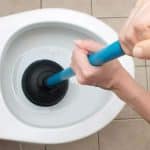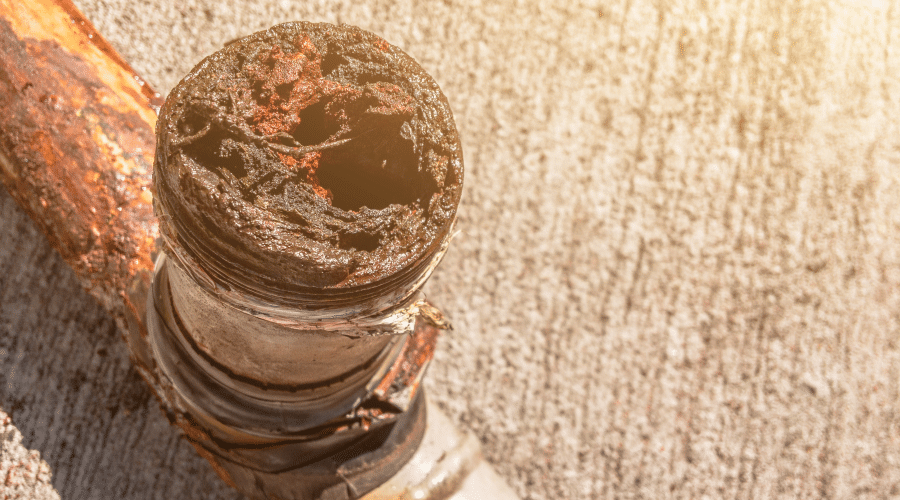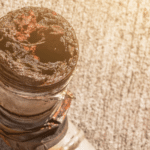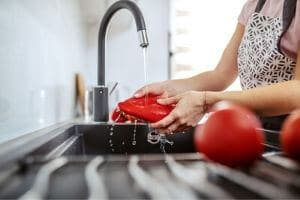Methods to Avoid a Clogged Drain
Drain clogs can cause sinks to become backed up with bits of food, hair, or grease. When this happens, the drain cannot easily remove the dirty water from a home, leading to slow draining, foul odors, and gurgling sounds. Although many homeowners assume that if the drain is still working, there’s nothing wrong, slow draining is still a problem that indicates a clog in the pipes. Without properly treating or preventing clogs, the entire plumbing system can be put in jeopardy of burst pipes and other plumbing issues. This blog will share three easy ways to avoid clogged drains.
Drain Cleaning
Routine drain cleaning by a professional is an essential part of keeping drains clear and preventing costly problems with clogs. Professional plumbers have the tools and knowledge to effectively clean out drains and pipes, including using specialized equipment such as hydro jetting or drain snakes to dislodge tough clogs.
During a routine cleaning, they will also inspect the drain for any signs of damage or deterioration that could lead to future problems. Additionally, they can flush out debris and buildup from the drain lines that can cause slow-draining water or small blockages.
By having the drains routinely cleaned by a professional, homeowners can maintain optimal flow and reduce the risk of clogs in the future. Routine drain cleaning is also a great way to keep drains free of bacteria and other contaminants that can cause health issues.
Mesh Drain Screen
A drain mesh screen is an essential item for any homeowner who wants to ensure that their home's drainage system remains clog-free. It catches anything that would otherwise go down the drain, such as food scraps and hair. This prevents blockages from forming in the pipes and ensures that water flows freely through them.
Not only will this help protect a home from costly plumbing repairs, but it can also save time and money in the long run. Installing a drain mesh screen is quick and easy, and it requires no special tools or skills. All homeowners need to do is insert the screens over their drains and secure them in place. By doing this, they'll be able to keep an eye on what goes down their drains and prevent any blockages from forming.
Don’t Put Food Waste or Cooking Grease Down the Drain

The best way to prevent these clogs is to avoid putting these items down the drain altogether. Instead, dispose of food scraps and cooking grease in the trash or compost them if possible. Taking preventative measures now can save homeowners major headaches down the road.
About Super Plumbers
Super Plumbers is a local family-owned and operated business serving Tyler, TX, and the surrounding areas. They provide flat-rate pricing, 24/7 emergency repairs, and a 100% satisfaction guarantee. Call them today for drain cleaning services in Tyler, TX.
Distribution Links +
- htv10.tv
- wicz.com
- snntv.com
- central.newschannelnebraska.com
- metro.newschannelnebraska.com
- midplains.newschannelnebraska.com
- northeast.newschannelnebraska.com
- plattevalley.newschannelnebraska.com
- panhandle.newschannelnebraska.com
- wpgxfox28.com
- lifestyle.mykmlk.com
- wtnzfox43.com
- lifestyle.3wzfm.com
- lifestyle.southernsportstoday.com
- lifestyle.thepodcastpark.com
- lifestyle.680thefan.com
- lifestyle.xtra1063.com
- lifestyle.953hlf.com
- lifestyle.rewind1019.com
- lifestyle.us983.com
- lifestyle.countrylegends1059.com
- lifestyle.967wshv.com
- lifestyle.1045thedan.com
- yournewsnet.com
- michigan.yournewsnet.com
- midwest.yournewsnet.com
- northeast.yournewsnet.com
- southeast.yournewsnet.com
- southwest.yournewsnet.com
- lifestyle.earl983.com
- west.yournewsnet.com
- lifestyle.maverick1023.com
- lifestyle.magic979wtrg.com
- lifestyle.1077lakefm.com



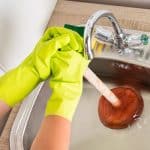


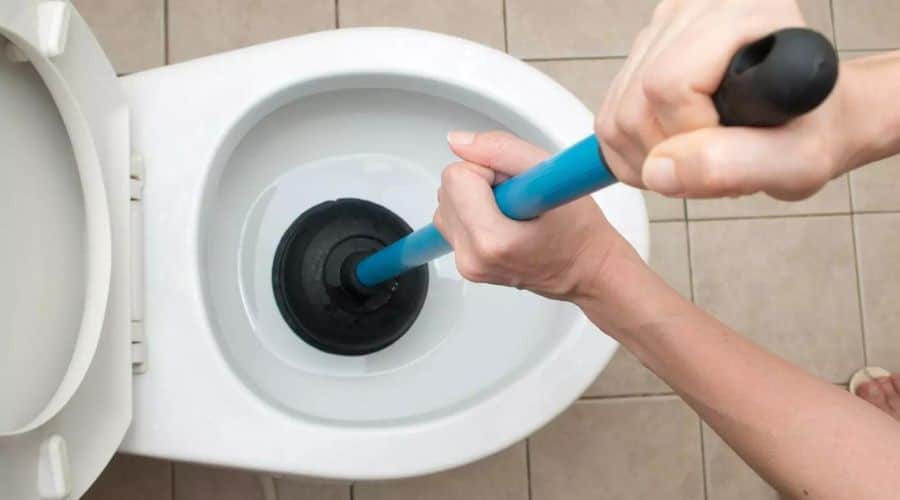
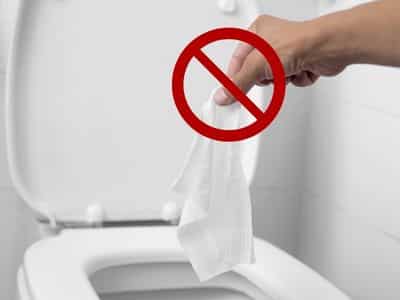 For many people, flushing something down the toilet is “out of sight, out of mind.” After all, once an item leaves the bowl, does it matter where it goes? Of course, it does! Clogs can build up deep within the home’s sewer main, leading to leaks, burst pipes, and the dreaded overflowing clogged toilet.
For many people, flushing something down the toilet is “out of sight, out of mind.” After all, once an item leaves the bowl, does it matter where it goes? Of course, it does! Clogs can build up deep within the home’s sewer main, leading to leaks, burst pipes, and the dreaded overflowing clogged toilet.  Even though toilet paper can be flushed, it doesn’t mean that toilet paper usage habits can’t cause clogged toilets too. Flushing too much at once is a common cause of toilet clogs. To prevent clogs from toilet paper, people can use less toilet paper or flush more than once during the process so that all the toilet paper used isn’t flushed at once.
Even though toilet paper can be flushed, it doesn’t mean that toilet paper usage habits can’t cause clogged toilets too. Flushing too much at once is a common cause of toilet clogs. To prevent clogs from toilet paper, people can use less toilet paper or flush more than once during the process so that all the toilet paper used isn’t flushed at once. 